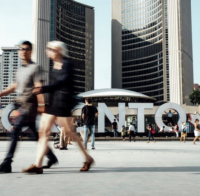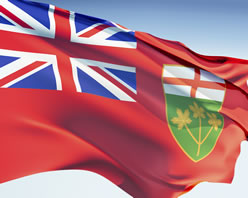WHO Recognizes Compulsive Sexual Behaviour Disorder
Earlier this year the World Health Organization (WHO) officially designated addiction to video games as “gaming disorder”. Now it has recognized compulsive sexual behaviour as a mental disorder. However, this announcement comes with some caveats. Sex addiction as a term has been used for years, and we have a specialized page on sex addiction treatment on our website. Many therapists say that they specialize in sex addiction as part of their addiction medicine. However, experts disagree over whether it is even a true condition. The WHO stated that it is a mental illness, although have not classified as an addictive behaviour. WHO expert Geoffrey Reed said, “conservatively speaking, we don’t feel that the evidence is there yet… that the process is equivalent to the process with alcohol or heroin.” The health organization’s update of the International Classification of Disease (ICD) in June said compulsive sexual behaviour disorder (CSBD) is “characterized by persistent failure to control intense, repetitive sexual impulses or urges… that cause marked distress or impairment” but that it could not be concluded yet that CSBD constitutes the manifestation of a behavioural addiction. Some may think this is an on-the-fence ruling, but this actually helps a lot of people who are looking for clinical help. The ICD is the benchmark for doctors giving diagnoses, and for health insurance companies. Now that there is a classification, people who have CSBD have greater access to services and resources. It is also important to remember that just like alcohol consumption or playing video games, everyone will have a different level of activity that they find normal. What pushes an activity to an addiction level is when doing that activity is negatively impacting someone’s life. Some people may have a high libido, but if their sexual activities are consensual and do not cause negative ramifications in other areas of their life, there is likely no addiction present. If you are questioning the safety or frequency of your sexual encounters take a look at “The 3 Cs of Addiction” and consider giving our specialist a call to find out the options available to you. References: WHO Recognizes ‘Compulsive Sexual Behavior’ as Mental Disorder JMC – 2018.07.25 The post WHO Recognizes Compulsive Sexual Behaviour Disorder appeared first on Canada Drug...
Health Boards Across Canada Call for Decriminalization: Ignored by Feds
We reported earlier this month that the Toronto Board of Health released a report by the city’s medical officer, Dr. Eileen De Villa, that called for the decriminalization of all illegal recreational drugs. The Board urged Dr. De Villa to forward her report to the health boards in Canada’s 10 largest cities, among other organizations. Now, Montreal’s public health department has come out in support of Dr. De Villa’s report and its recommendations. Mylène Drouin is the director of Montreal’s public health department and has said the matter of decriminalization will be on the agenda for their provincial and national health meetings. Long before decriminalization was the hot topic it is today, Vancouver Mayor Gregor Robertson has been calling for drug policy changes. Vancouver has been at the forefront of the drug use epidemic for years and is the home of North America’s first supervised injection site, InSite. Vancouver had 335 opioid-related deaths in 2017, while Toronto had 303, and Montreal 140. It’s not just the mayor, multiple health bodies and officials have petitioned the federal government to address the issue of decriminalization. With three of Canada’s largest and most influential cities’ health boards calling for decriminalization, surely Ottawa is willing to listen. Not so. The spokesperson for Health Minister Ginette Petitpas Taylor said the federal government is not willing to decriminalize or legalize any more drugs after cannabis. Fardous Hosseiny, the national director of research and public policy at the Canadian Mental Health Association applauds the decisions of Vancouver, Toronto, and Montreal and agrees dark times call for enlightened ideas. Even the Liberal Party itself wants decriminalization on the table, but Trudeau and Taylor flatly refused to consider the resolution passed by their own party during the national convention in April of this year. As other Canadian cities health boards meet and look over Toronto’s recommendations we will report back, and keep you updated as to whether or not the federal government decides to start taking these esteemed scientists and public officials’ educated opinions into account. References: Toronto Recommends Decriminalization Federal Government Won’t Decriminalize Other Drugs Besides Cannabis The post Health Boards Across Canada Call for Decriminalization: Ignored by Feds appeared first on Canada Drug...
Sober Living vs. Primary Drug Rehab and Alcohol Treatment in Canada
Feeling good after leaving rehab but worried about re-entering the environment that fostered your addiction? Sober living throughout Canada can be a great option to help bridge the gap from primary treatment to home life. Primary treatment programs usually refer to inpatient drug and alcohol rehabilitation. These primary treatment programs are very structured and usually intensive. This means most of the day is scheduled so clients are going from small group sessions to recreational activities to one-on-one time with counselors. Sober living is a bridge from this highly structured and supported environment to the real world. It can be very jarring going from rehab back to regular life. Especially if the client’s home environment or daily routine was part of their previous substance user lifestyle. Sober living is a good transition for people leaving primary care. Sober Living Sober living is usually a post-treatment option, but some programs accept people who have not been to treatment before. These programs offer a safe and supportive living environment for those wanting to live a sober life. They often require that the clients attend a certain number of meetings a week, and most require that the clients participate in domestic duties like cooking and cleaning as they are designed to help reintegrate people to regular life. Another aspect of these programs is that they usually ask that clients be employed, or volunteer, or be working towards an education. This is again to demonstrate a willingness to live a productive healthy life. Supportive Recovery Supportive recovery programs are similar to sober living and are often classified in three stages. Stage one is close to primary treatment. While less intensive, they are still quite restrictive where clients must participate in on-site meetings, and cannot leave the facility without permission or being accompanied by a staff member. As clients demonstrate progress they can move to Stage 2. This entails less supervision, more offsite meetings, and clients are encouraged to apply for job and volunteer opportunities. Stage 3 is substantially less restrictive and has much more flexibility in the types and times of meetings to attend. Programs in Canada BC is the best province for sober living programs and has many private and public options. Alberta has only a few options in Calgary and Edmonton. Ontario has a few private options, as well as the government-funded ASH program. If you are looking at drug and alcohol rehab in Canada, ask facilities if they offer any aftercare or sober living options for once you complete the program. Contact our specialist for help finding the right level of support for you. JMC 2018.06.19 The post Sober Living vs. Primary Drug Rehab and Alcohol Treatment in Canada appeared first on Canada Drug...
Nova Scotia Mental Health and Addictions Plan
Nova Scotia announced plans to develop a mental health and addictions strategy in 2010. During 2011 the advisory committee met with more than 1200 Nova Scotians and reviewed best practices and other research to produce a Nova Scotia mental health and addictions action plan. The report Together We Can: The plan to improve mental health and addictions care for Nova Scotians was released in 2012 to serve as a guide for the next five years. This blog will look at this original report, as well as the Progress Update released in 2016. In Together We Can five priority areas were identified, with recommendations on how to move forward. Intervening and Treating Early for Better Results – With a Focus on Children and Youth The Nova Scotia mental health and addictions plan noted that 70% of mental illnesses begin before the age of 25, and early intervention can prevent bigger problems later in life. As such, one of the action points is to screen every child in Nova Scotia at 18 months of age to hopefully pick up any developmental delays to help foster a healthy childhood. Strongest Families, a 12-week phone-based program for children with behavioural problems that has already been implemented in some areas of the province, will be expanded throughout the province. SchoolsPlus is a service offered in 79 schools where children have access to mental health professionals at school. Shorter Waits, Better Care One of the biggest difficulties facing Nova Scotia mental health and addictions is expanding services to reduce wait times. Choice and Partnership Approach (CAPA) is supposed to see patients shortly after being referred in order to match them with the treatment they need. However, the action point does not adequately explain how this program will be faster than what is currently in place. There are not enough drug and alcohol rehabs to send people to in Nova Scotia. Peer support for those leaving a mental health or addiction treatment program in hospital and transitioning back to their regular life is suggested. Perhaps sober living housing units in underserved communities would be better suited to aiding a successful transition. There are a few more action points that are good ideas, such as more family support for those caring for people with mental illness or addictions. However, it seems to shift the burden of care from provincial structures to families and does not address wait times. Expanding the current toll-free line for the province so it is 24/7 is a good step forward though, as many in rural areas lack out of hours care. Aboriginal and Diverse Communities Most of the provinces we have looked at so far pay lip service to wanting to expand ‘cultural competencies’ and serve marginalized populations. However, Nova Scotia has some concrete ideas that if successful could truly make the mental health and addictions field more diverse and able to care for all its citizens. The committee suggests creating diversity implementation groups that are made up of the diverse populations themselves (LGBTQ, Francophone, First Nations, African Nova Scotians etc) to create guidelines on how best to deliver mental health and addiction services and programs. Most interestingly and different from the other provinces is that Nova Scotia is actively recruiting and promoting mental health and addiction careers within these diverse communities so that healthcare providers begin to mirror the true face of Nova Scotia. Working Together Differently The committee suggests improving access to housing, better support in the community, and bridging the gap from corrections to community life. These are all good suggestions but do not go into detail about how...
Toronto Recommends Decriminalization
Toronto’s Board of Health is recommending decriminalization of all illegal recreational drugs following a new report by the city’s medical officer. Dr Eileen De Villa, Toronto’s medical officer of health, has taken the last year to work with her team on the best way to tackle Toronto’s growing opioid concerns. The opioid crisis is most prominent in the west of the country, with Vancouver being hardest hit, however, fentanyl and other analogues are now more common in the eastern provinces. There were 303 opioid overdose-related deaths in 2017 in Toronto, a 63% increase from 2016. Nearly 4000 Canadians died last year from opioid overdoses. Dr Eileen De Villa says “drug use has always been with us, humans have always used drugs in one way, shape or form. The potential harms associated with any of these drugs is worsened when people are pushed into a position where they have to produce, obtain, and consume those drugs illegally.” De Villa and her committee have been reviewing scientific literature, conferring with other jurisdictions, and speaking directly with drug users and others for the past year. The main jurisdictions analyzed were Portugal, Switzerland, and Germany. De Villa stated “they are getting reduced drug use rates. They are getting minimized harm associated with drug use and ultimately better community health as a whole.” The results of that report were presented on Monday to the Toronto Board of Health. The recommendations outlined in the report, namely to force the federal government to take a public health rather than a criminal approach to drug use, were unanimously approved by the board. Due to this approval, the federal government has now been issued a letter informing it of the board’s recommendation. The board also asked De Villa to forward her report to Ontario public health boards, the boards of health in Canada’s 10 largest cities, and the Ontario Public Health Association. The Toronto Board of Health is not the first to recommend decriminalization across the spectrum of substances. At the Liberal National Convention held in April in Halifax this year, Liberal party members passed a resolution to address the opioid crisis through a public health approach. As well, the proposition to decriminalize small amounts of illicit drugs was passed. Despite building public pressure, as well as scientific data in favour, the Liberal elite is still against decriminalization, with both the PM and Health Minister dismissing the possibility. References: Toronto Board of Health to Urge Federal Government to Decriminalize Drug Use Toronto’s Medical Officer of Health Wants Feds to Decriminalize All Drugs for Personal Use The post Toronto Recommends Decriminalization appeared first on Canada Drug...








